Hyundai hits a pothole on the road to robotaxis as Tesla, Waymo pull ahead
Update: 2025-10-21
Description
This article is by Sarah Chea and read by an artificial voice.
As autonomous driving technology races ahead - with companies like Waymo and Baidu accelerating at breakneck speed - Hyundai Motor's long-touted vision and hefty investment face a critical moment of reckoning.
Hyundai had repeatedly walked back its plan to equip the 2023 Kia EV9 and Genesis G90 with Level 3 autonomous technology due to ongoing technological limitations, but even more telling is its lag in the service-driven market, such as robotaxis, where rivals are advancing at a markedly faster pace.
Motional, a Boston-based self-driving company of which 87 percent is owned by Hyundai Motor Group, placed just 15th out of 20 in Guidehouse's 2024 global rankings of leading autonomous tech firms, compared to 5th the year prior. The consulting firm criticized Motional for failing to establish a "sustainable business model" despite significant investment.
While Hyundai stalls, Tesla has already rolled out its full self-driving (FSD) system to the general public in the United States, and Waymo's cumulative autonomous mileage surpassed 100 million miles as of July. Even Japan - long seen as being cautious regarding self-driving - opened its doors to pilot programs by Waymo and Tesla as of April this year.
Fragmented R&D
Hyundai's rollout of Level 3 autonomous technology has been delayed for five consecutive years, with no definitive timeline currently in place.
Its struggle in the driverless car race can be traced, in large part, to a deeply fragmented innovation ecosystem, according to experts, where overlapping mandates and siloed development have hindered the cohesiveness of its technological strategy.
The group's autonomous efforts are dispersed across a patchwork of entities, including Motional, which focuses on robotaxi deployment; the advanced vehicle platform division within Hyundai and Kia; and 42dot, a mobility software arm. Hyundai's auto parts affiliates - Hyundai Mobis and Hyundai AutoEver - are also advancing parallel initiatives of their own.
Hyundai increased its stake in Motional in May to 86.6 percent, following an additional capital injection, bringing its total investment to nearly 5 trillion won ($3.5 billion). Motional was established in 2020 as a $4 billion joint venture between Hyundai and Aptiv, a Dublin-based mobility firm, with each party initially committing $2 billion. Last year, Hyundai acquired Aptiv's remaining 11 percent stake, worth 1.3 trillion won, and Aptiv withdrew from further funding.
Despite five years of development, Motional has yet to deliver meaningful commercial results as it suspended its pilot robotaxi services in Las Vegas and Santa Monica, California last year, citing "high operational costs and expensive components." Its planned commercial launch of Ioniq 5 robotaxi - originally slated for 2025 - has now been pushed back to 2026. Its cumulative losses amounted to 2.3 trillion won as of the first half of this year.
"Hyundai appears to have been slow to respond to the industry's shift toward AI-centric autonomous driving, led by Tesla and Waymo," said Choi Jun-won, a professor of AI and member of the autonomous driving lab at Seoul National University.
"Navigating the complexity of real-world driving environments increasingly demands AI systems trained on vast volumes of data - an area where scale and speed are proving decisive."
42dot, another Hyundai affiliate, has faced similar setbacks despite Hyundai's almost 2-trillion-won investment. It suspended key projects before commercialization, including UMOS, an integrated urban mobility operating system for taxis and buses, and discontinued TAP!, a ride-hailing and boarding platform for self-driving vehicles, last year. Over its roughly 28-month run, TAP! logged just some 45,700 passengers and 171,718 kilometers traveled.
"In regard to global market trends, automakers, including Hyundai, have generally missed the right time to establish their autonomous driving stra...
As autonomous driving technology races ahead - with companies like Waymo and Baidu accelerating at breakneck speed - Hyundai Motor's long-touted vision and hefty investment face a critical moment of reckoning.
Hyundai had repeatedly walked back its plan to equip the 2023 Kia EV9 and Genesis G90 with Level 3 autonomous technology due to ongoing technological limitations, but even more telling is its lag in the service-driven market, such as robotaxis, where rivals are advancing at a markedly faster pace.
Motional, a Boston-based self-driving company of which 87 percent is owned by Hyundai Motor Group, placed just 15th out of 20 in Guidehouse's 2024 global rankings of leading autonomous tech firms, compared to 5th the year prior. The consulting firm criticized Motional for failing to establish a "sustainable business model" despite significant investment.
While Hyundai stalls, Tesla has already rolled out its full self-driving (FSD) system to the general public in the United States, and Waymo's cumulative autonomous mileage surpassed 100 million miles as of July. Even Japan - long seen as being cautious regarding self-driving - opened its doors to pilot programs by Waymo and Tesla as of April this year.
Fragmented R&D
Hyundai's rollout of Level 3 autonomous technology has been delayed for five consecutive years, with no definitive timeline currently in place.
Its struggle in the driverless car race can be traced, in large part, to a deeply fragmented innovation ecosystem, according to experts, where overlapping mandates and siloed development have hindered the cohesiveness of its technological strategy.
The group's autonomous efforts are dispersed across a patchwork of entities, including Motional, which focuses on robotaxi deployment; the advanced vehicle platform division within Hyundai and Kia; and 42dot, a mobility software arm. Hyundai's auto parts affiliates - Hyundai Mobis and Hyundai AutoEver - are also advancing parallel initiatives of their own.
Hyundai increased its stake in Motional in May to 86.6 percent, following an additional capital injection, bringing its total investment to nearly 5 trillion won ($3.5 billion). Motional was established in 2020 as a $4 billion joint venture between Hyundai and Aptiv, a Dublin-based mobility firm, with each party initially committing $2 billion. Last year, Hyundai acquired Aptiv's remaining 11 percent stake, worth 1.3 trillion won, and Aptiv withdrew from further funding.
Despite five years of development, Motional has yet to deliver meaningful commercial results as it suspended its pilot robotaxi services in Las Vegas and Santa Monica, California last year, citing "high operational costs and expensive components." Its planned commercial launch of Ioniq 5 robotaxi - originally slated for 2025 - has now been pushed back to 2026. Its cumulative losses amounted to 2.3 trillion won as of the first half of this year.
"Hyundai appears to have been slow to respond to the industry's shift toward AI-centric autonomous driving, led by Tesla and Waymo," said Choi Jun-won, a professor of AI and member of the autonomous driving lab at Seoul National University.
"Navigating the complexity of real-world driving environments increasingly demands AI systems trained on vast volumes of data - an area where scale and speed are proving decisive."
42dot, another Hyundai affiliate, has faced similar setbacks despite Hyundai's almost 2-trillion-won investment. It suspended key projects before commercialization, including UMOS, an integrated urban mobility operating system for taxis and buses, and discontinued TAP!, a ride-hailing and boarding platform for self-driving vehicles, last year. Over its roughly 28-month run, TAP! logged just some 45,700 passengers and 171,718 kilometers traveled.
"In regard to global market trends, automakers, including Hyundai, have generally missed the right time to establish their autonomous driving stra...
Comments
In Channel

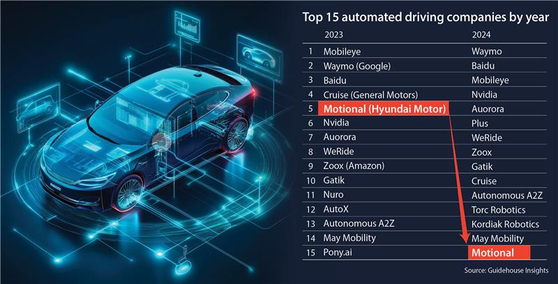
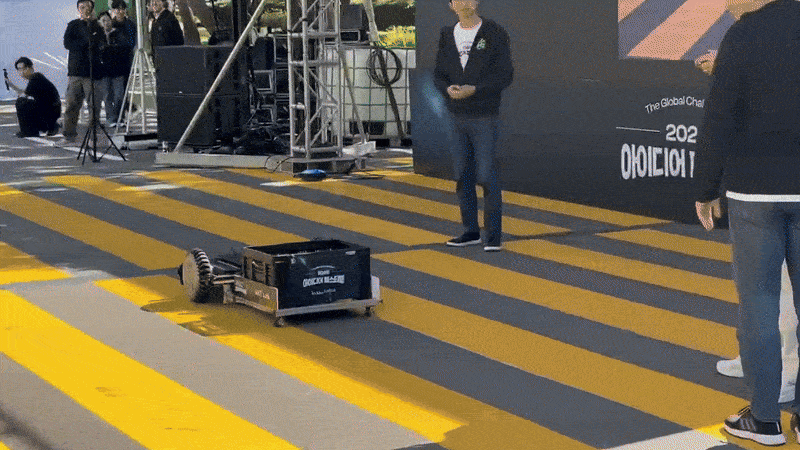
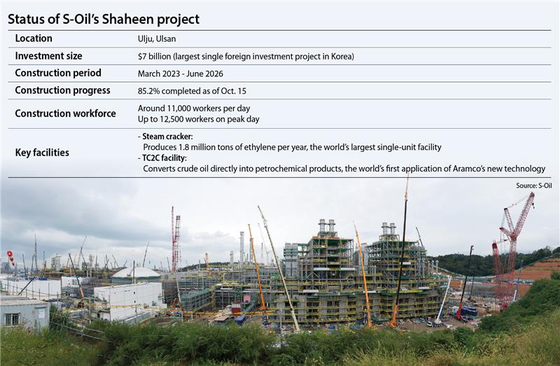



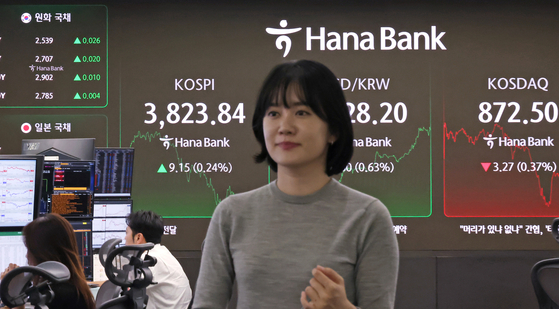
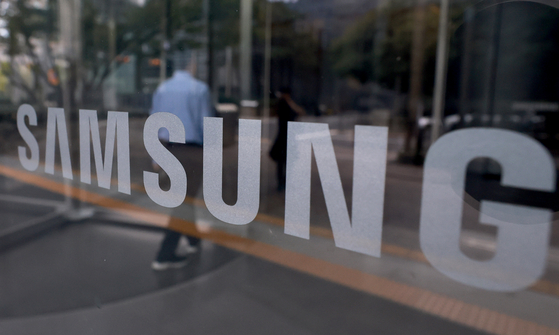
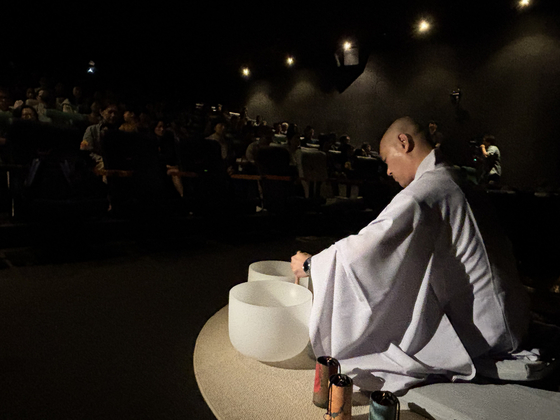
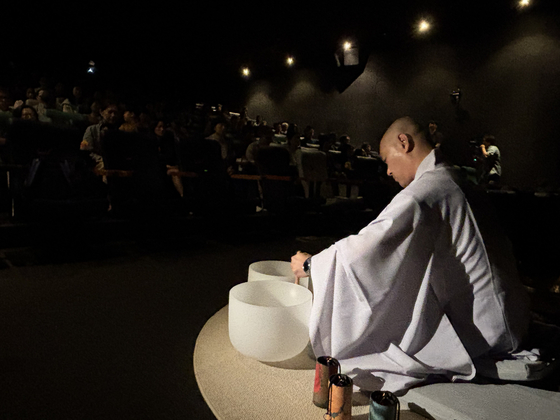




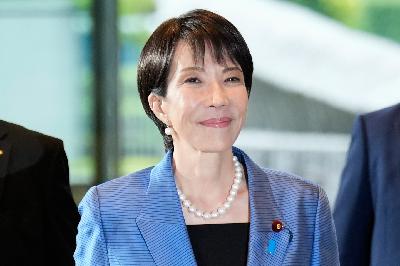


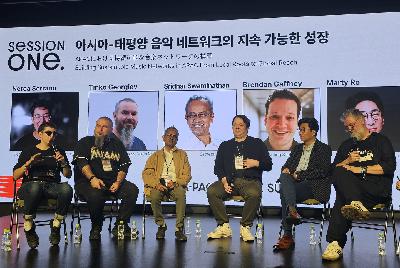

![[Hired in Korea] Taiwanese pharmaceutical worker shares how to stand out in the job market as a foreigner [Hired in Korea] Taiwanese pharmaceutical worker shares how to stand out in the job market as a foreigner](https://s3.castbox.fm/25/ae/48/1e5cbd6e6828ef399ce5e021770df62f5a_scaled_v1_400.jpg)



